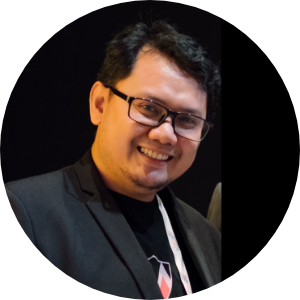“We’re not just fighting an epidemic, we’re fighting an infodemic. Fake news spreads faster and more easily than this virus (COVID-19) and is just as dangerous.”
- Tedros Adhanom Ghebreyesus, Director General, WHO, at the Munich Security Conference 2020.
The World Health Organization (WHO) defines infodemic as too much information, including false or misleading information in digital and physical environments, during a disease outbreak. Spread of misinformation and disinformation isn’t something new. It’s been around for ages.
The advent of the internet and social media has further amplified its reach and impact. As more people have access to smartphones, misinformation can be spread with just one prompt on the touch screen. By clicking on ‘share’, an information – be it real or fake – can spread in an instant.
During the COVID-19 pandemic, the spread of misinformation and disinformation has been amplified hundreds and thousands of times. In the absence of credible and reliable information, fake news flourishes. Due to the nature of the novel coronavirus, nothing much was known about the virus. This created a state of vacuum. The public wanted as much information about the virus and its spread, but governments and health institutions failed to address this need.
Not surprisingly, the public latched on to any news and information on the World Wide Web. Whether or not the information was true became secondary. The public got the answers, just not the correct ones. They were left to fend for themselves and let their imaginations run wild.
Public trust in governments has been at an all-time low. This is a global phenomenon attributed to the local and international political conditions. When there is a strong resentment and distrust towards the government, policies concerning public health become difficult to implement.
In such a scenario, social media platforms added to the chaos.They use algorithms to determine the content that a user consumes, based on their habits and preferences mined from previous internet activities. In other words, on social media, a person sees what they WANT to see, not what they NEED to see.
For example, when a person fascinated by conspiracies on vaccines and its use to “control population” explores social media, they will be taken to groups that churn out such content on the platform. The algorithm will decide that ‘vaccine conspiracies’ is the person’s interest and will push content within that theme – regardless of whether it is based on facts or not. The user then falls into a rabbit hole and becomes overwhelmed with stories of ‘vaccine conspiracies’.
It is imperative that the infodemic be handled tactfully, powered by an interdisciplinary approach. As fact-checkers, we practise social listening to understand the public’s concern and scope for misinformation. We can then deliver high quality health information, applying the intervention toolkits method to counter misinformation and disinformation.
It is important to monitor the environment and responses so as to support healthy behaviours and resilience to misinformation at individual, community, and societal levels. There is an urgent need to strengthen outbreak preparedness and public health response during acute health events.
As a member of the global community of fact-checkers at First Check, I believe that these approaches can be improved and bolstered in preparation for future health challenges. If and when another pandemic comes our way, we will be better equipped to handle it.

Dr Ahmad Firdaus Mohd Haris
Advisor & Founder, Medical Mythbusters Malaysia;
WHO-certified Infodemic Manager



